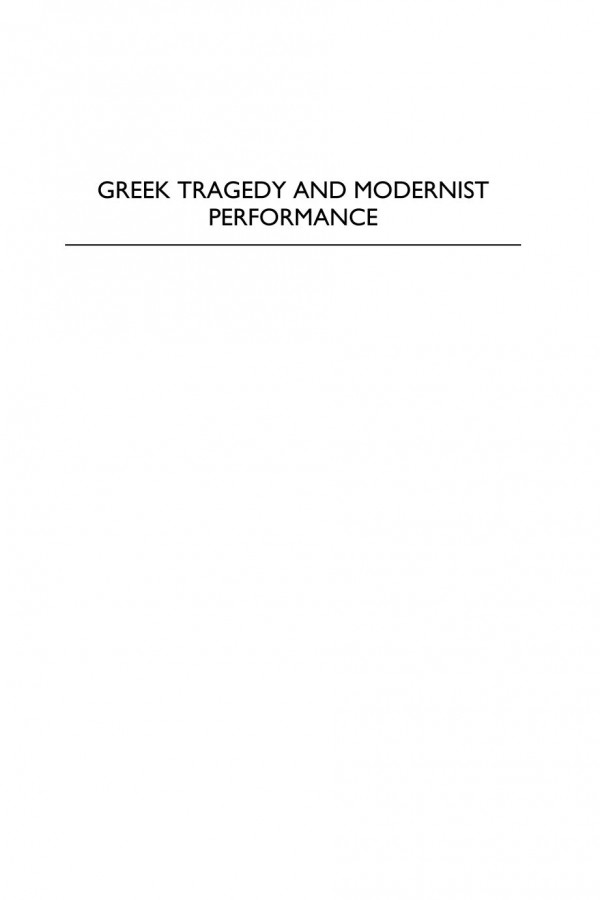

Most ebook files are in PDF format, so you can easily read them using various software such as Foxit Reader or directly on the Google Chrome browser.
Some ebook files are released by publishers in other formats such as .awz, .mobi, .epub, .fb2, etc. You may need to install specific software to read these formats on mobile/PC, such as Calibre.
Please read the tutorial at this link: https://ebookbell.com/faq
We offer FREE conversion to the popular formats you request; however, this may take some time. Therefore, right after payment, please email us, and we will try to provide the service as quickly as possible.
For some exceptional file formats or broken links (if any), please refrain from opening any disputes. Instead, email us first, and we will try to assist within a maximum of 6 hours.
EbookBell Team

5.0
30 reviewsThis book examines the ways the encounters between modernist theatre makers and Greek tragedy were constitutive in the modernist experiments in performance. Through a series of events / instances / poses that engage visual, literary and performing arts, the modernist love/hate relationship with classical Greek tragedy is read as contributing to a modernist notion of theatricality, one that follows a double motion, revising both our understanding of Greek tragedy and of modernism itself. Isadora Duncan, Edward Gordon Craig, T.S. Eliot, Ezra Pound, W. B. Yeats, H. D, and Bertolt Brecht and their various, sometimes successful sometimes failed experiments in creating a modernist aesthetic in performing, dancing, translating, designing Greek tragedies, sometimes for the stage and sometimes for the page, are presented as radical experiments in and gestures towards the autonomy of performance. In the process the artists of the theatre themselves – the actor, the designer, the director, the playwright – are reconfigured and given a lineage and genealogy, through this modernist revision of tragedy and the tragic not as as a philosophical or philological tradition, but as a performance practice.